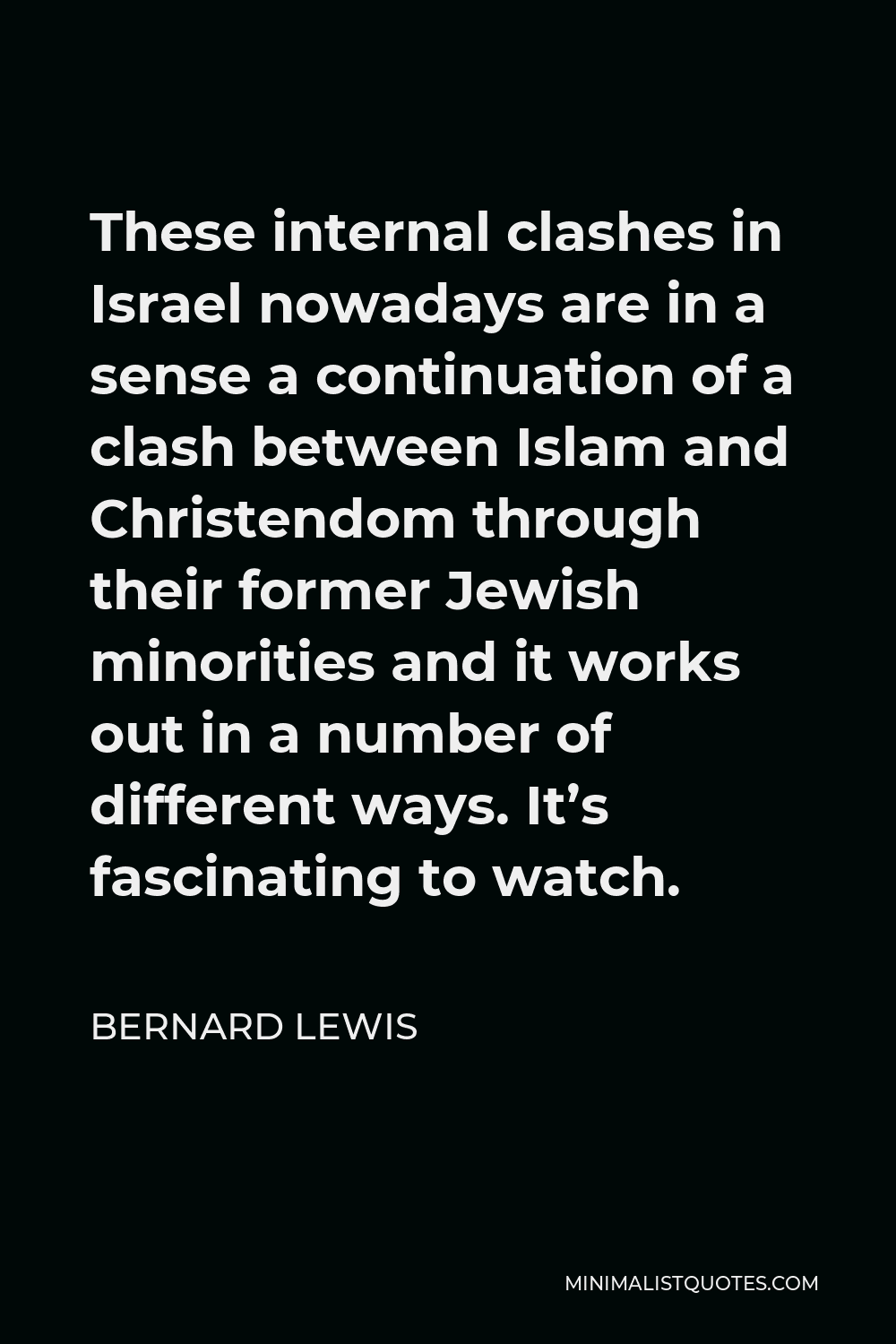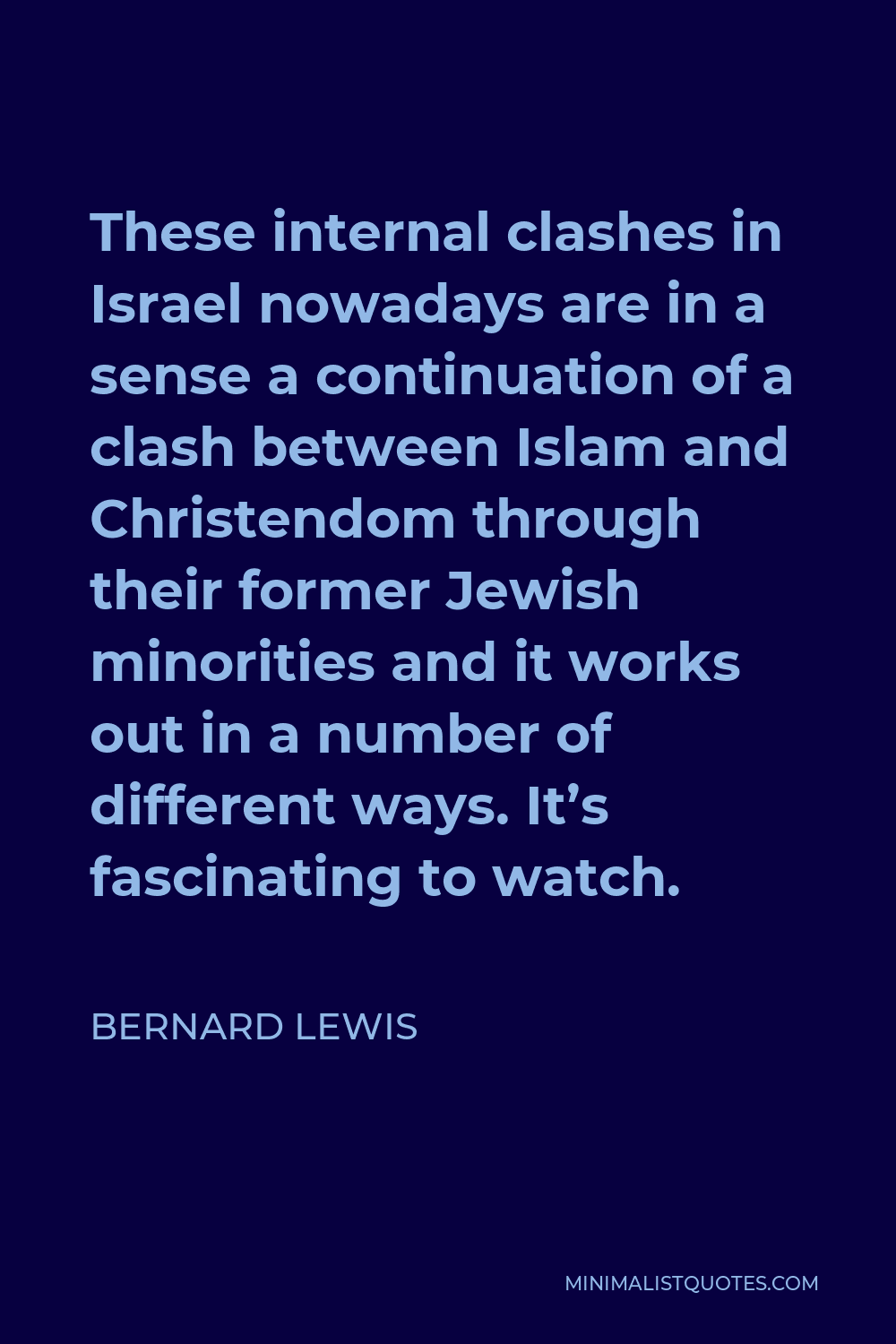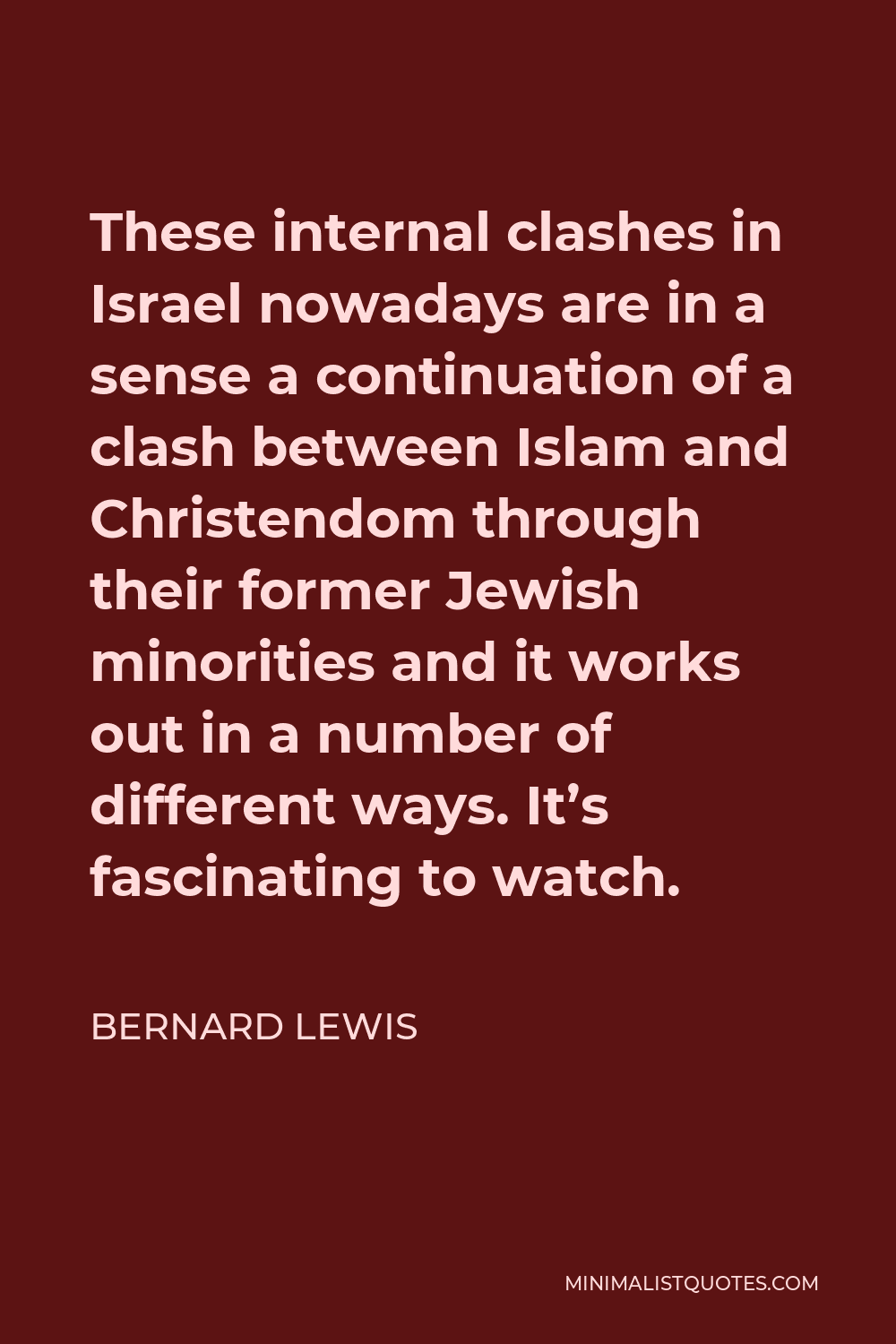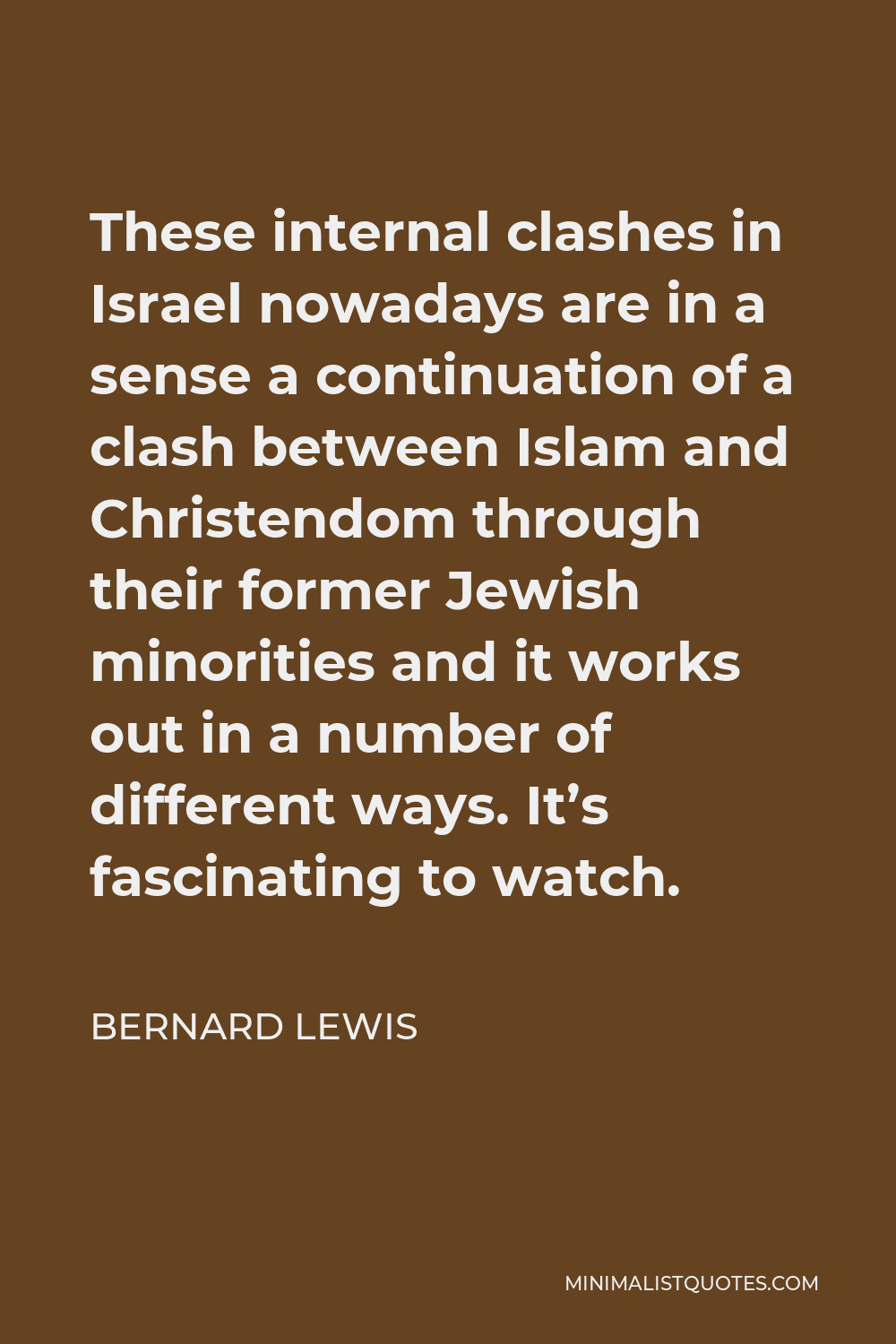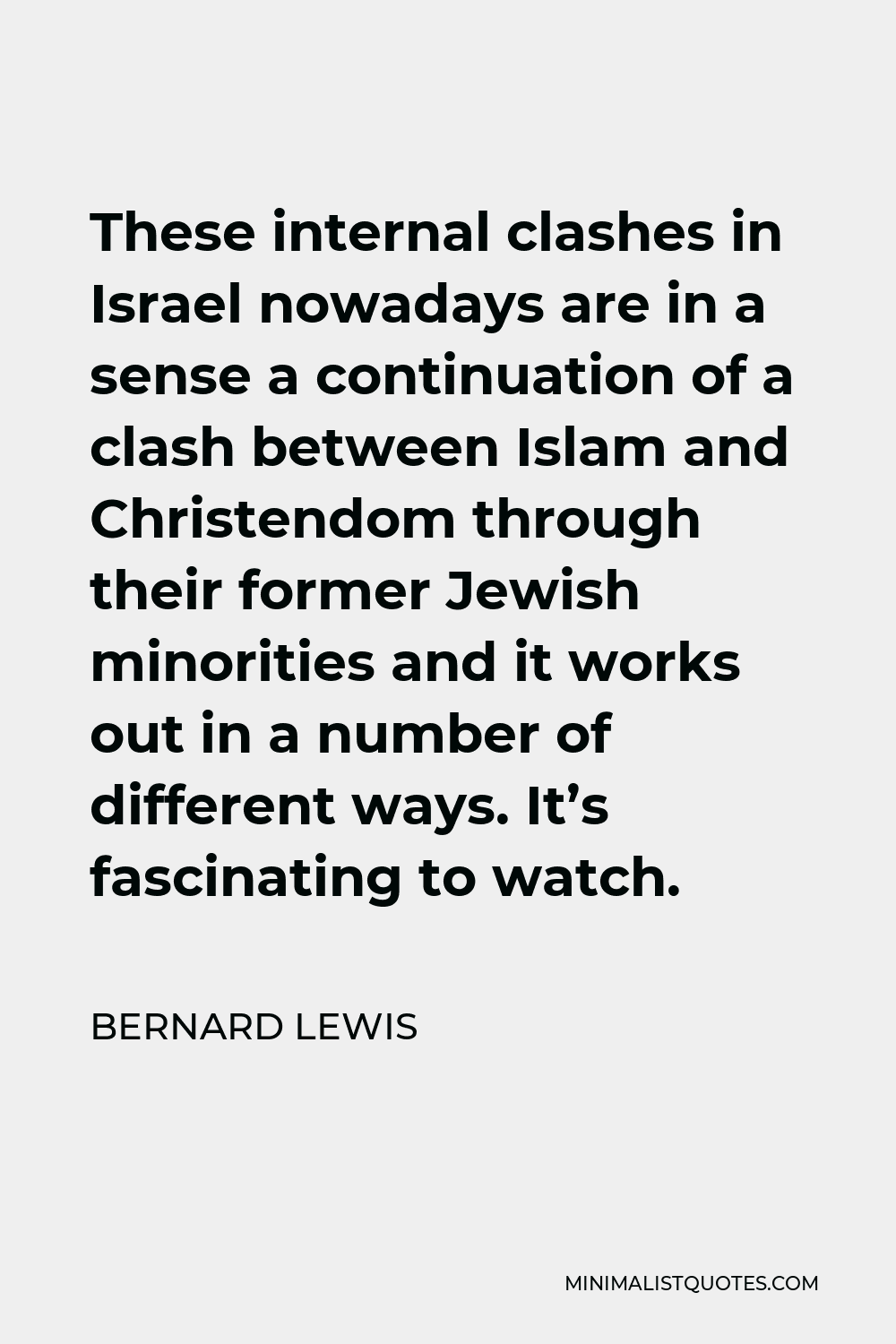Christians and Muslims share the belief that they are the fortunate recipient of the final God message.
BERNARD LEWISThese internal clashes in Israel nowadays are in a sense a continuation of a clash between Islam and Christendom through their former Jewish minorities and it works out in a number of different ways. It’s fascinating to watch.
More Bernard Lewis Quotes
-





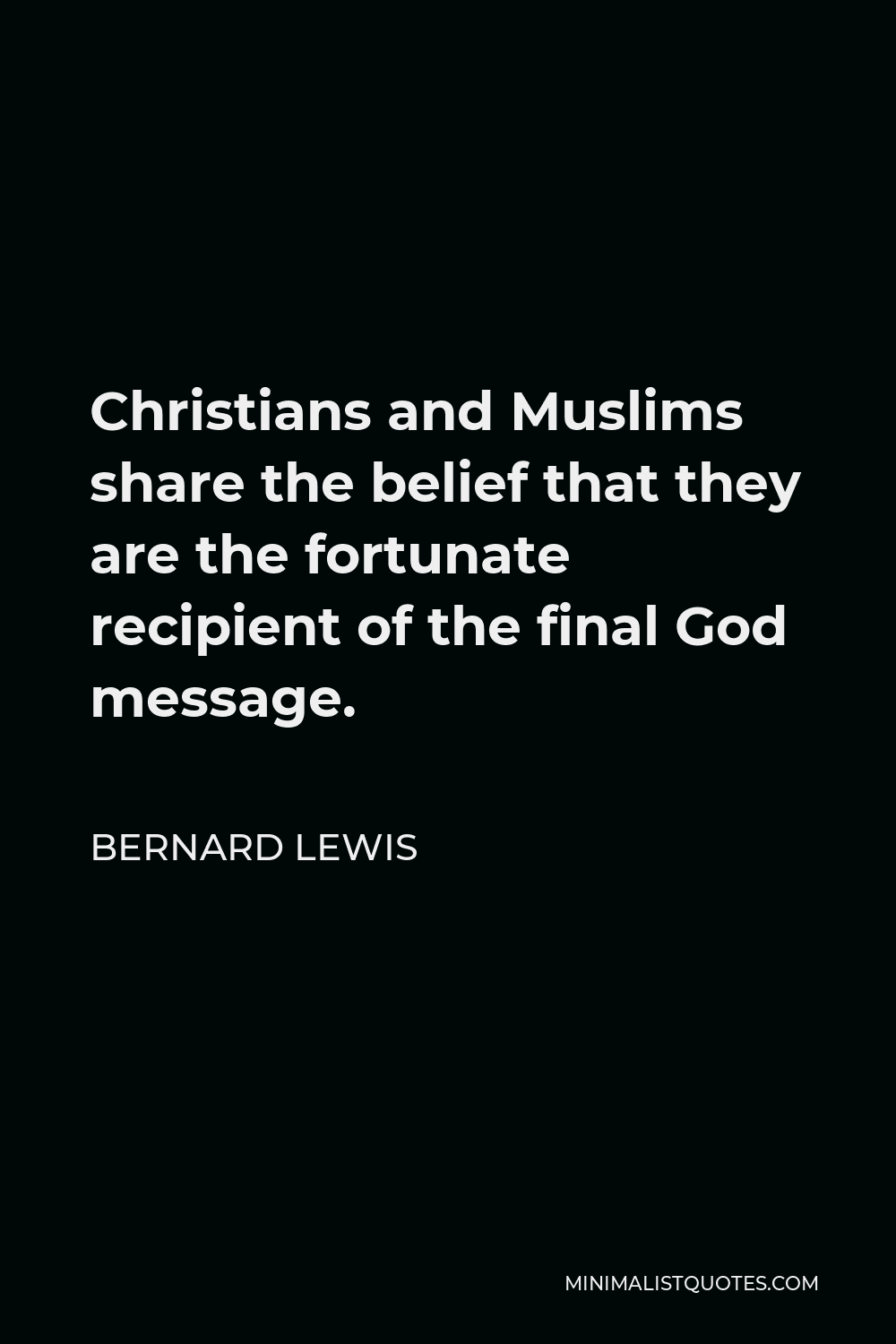
-





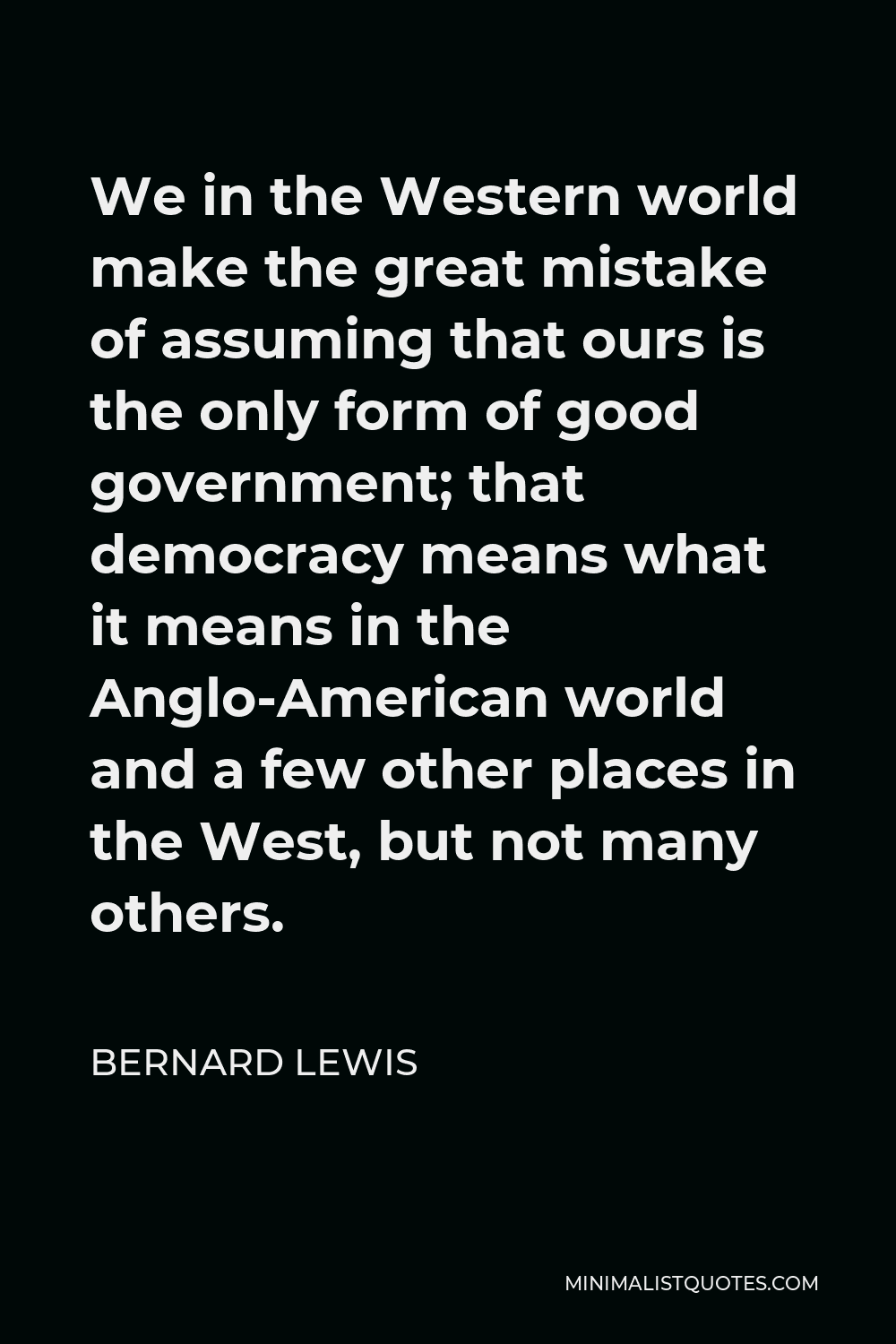
We in the Western world make the great mistake of assuming that ours is the only form of good government; that democracy means what it means in the Anglo-American world and a few other places in the West, but not many others.
BERNARD LEWIS -





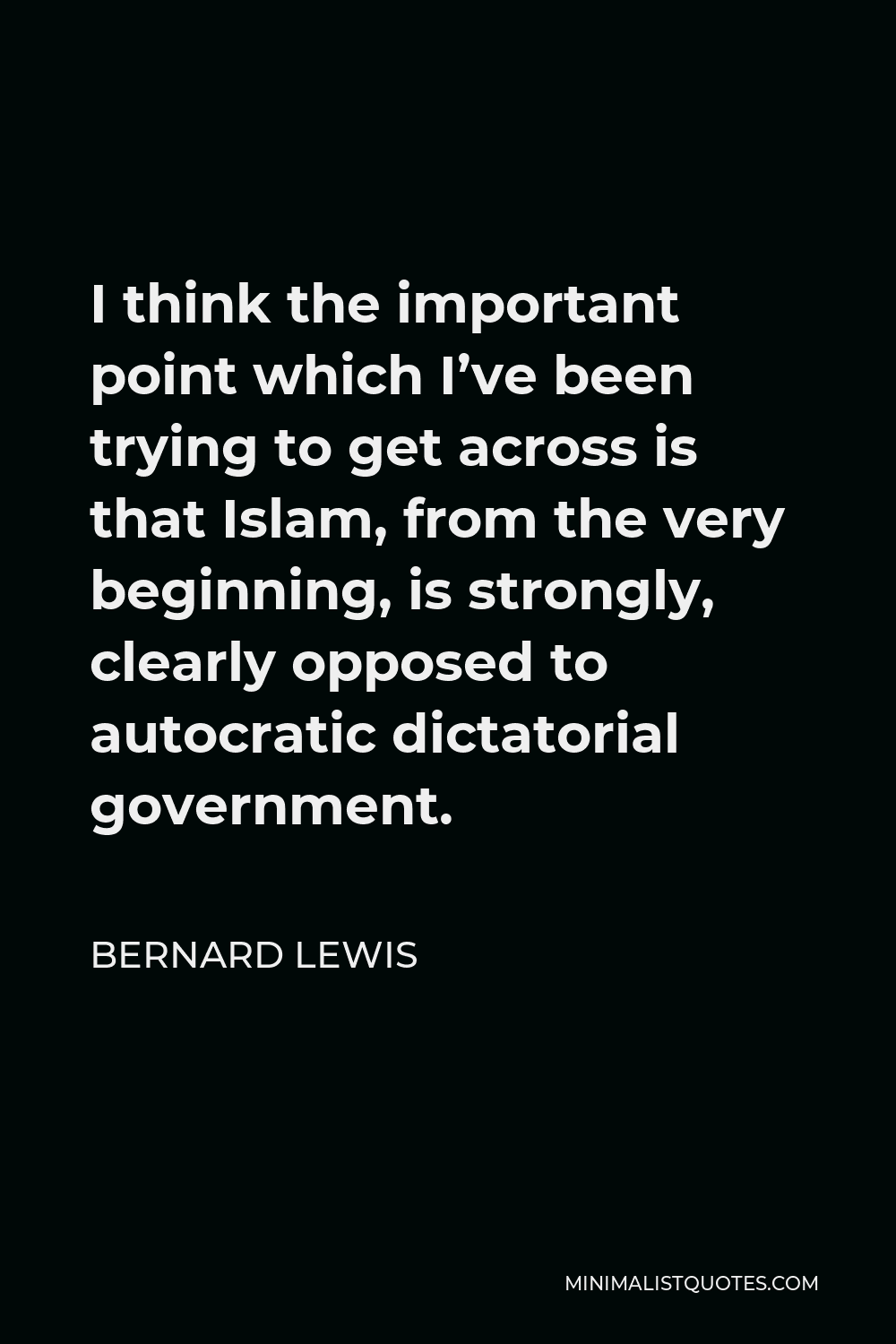
I think the important point which I’ve been trying to get across is that Islam, from the very beginning, is strongly, clearly opposed to autocratic dictatorial government.
BERNARD LEWIS -





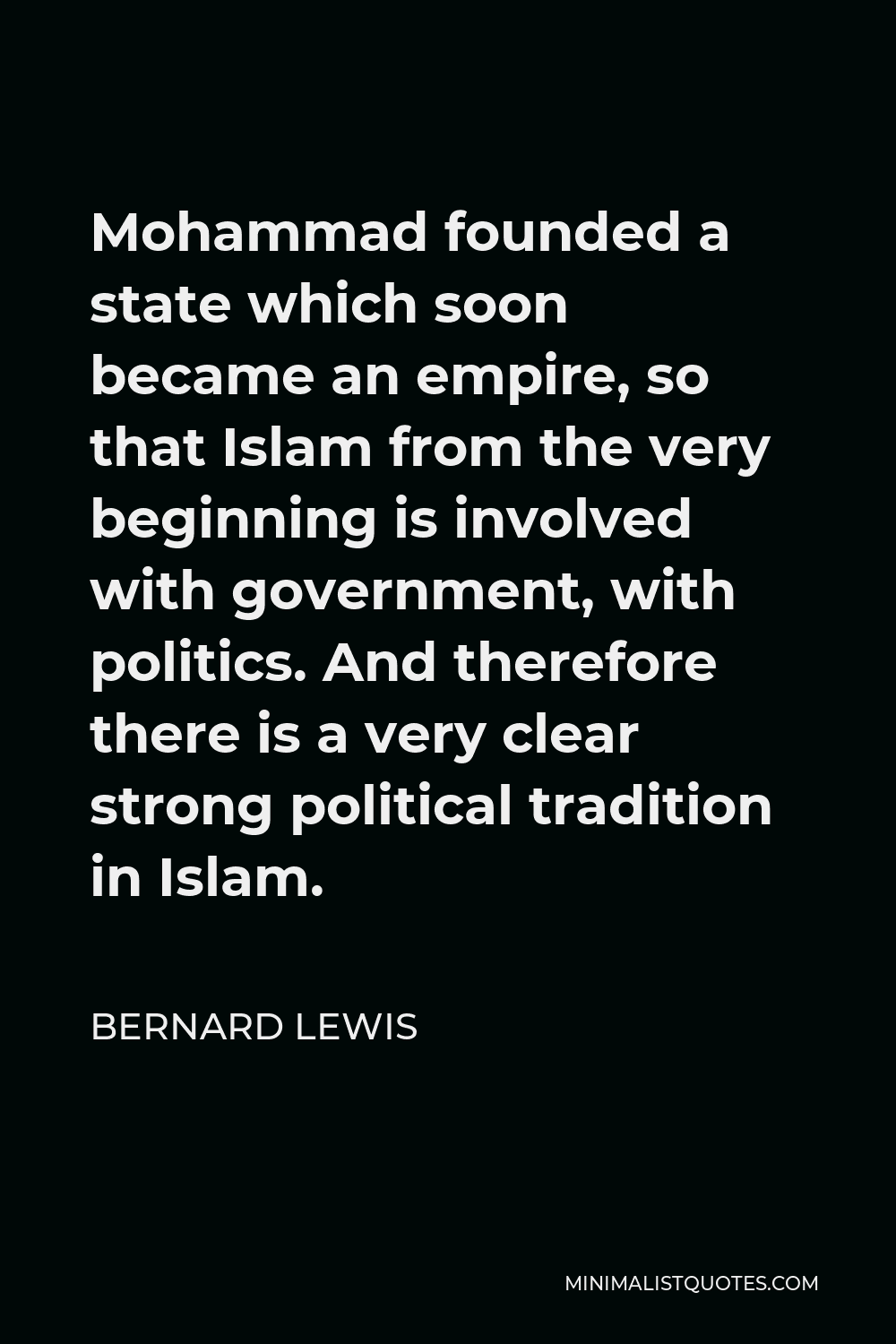
Mohammad founded a state which soon became an empire, so that Islam from the very beginning is involved with government, with politics. And therefore there is a very clear strong political tradition in Islam.
BERNARD LEWIS -





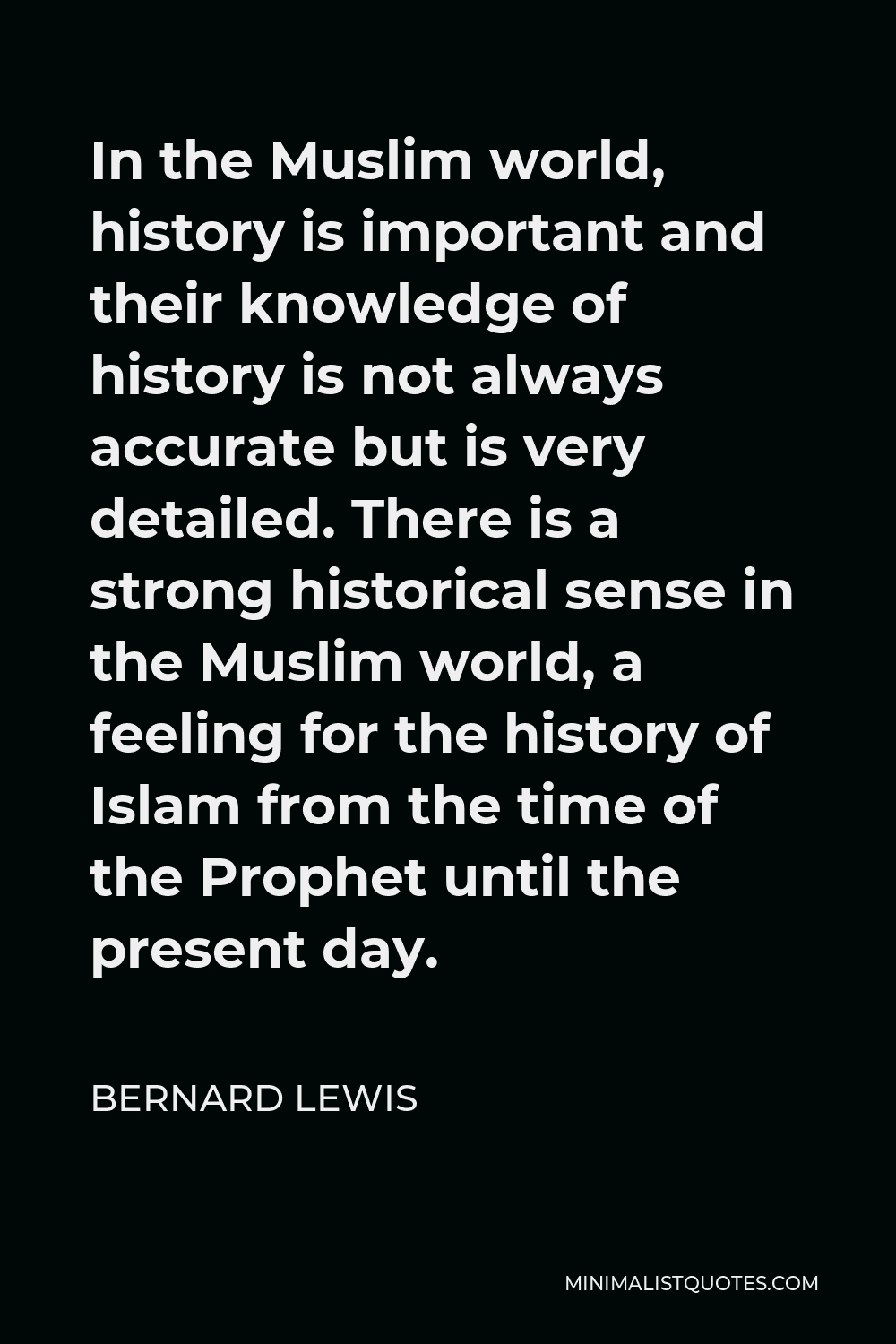
In the Muslim world, history is important and their knowledge of history is not always accurate but is very detailed. There is a strong historical sense in the Muslim world, a feeling for the history of Islam from the time of the Prophet until the present day.
BERNARD LEWIS -





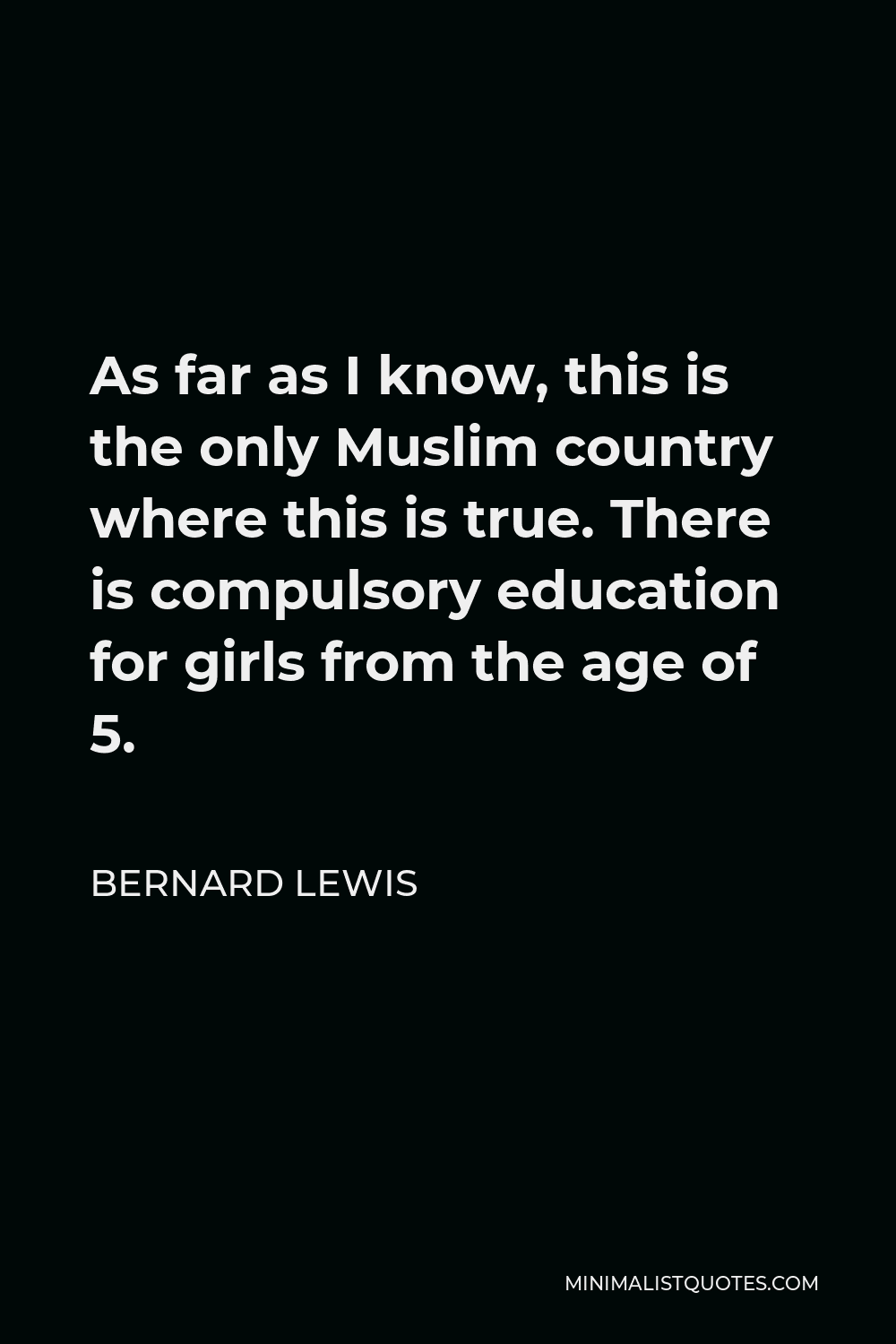
As far as I know, this is the only Muslim country where this is true. There is compulsory education for girls from the age of 5.
BERNARD LEWIS -





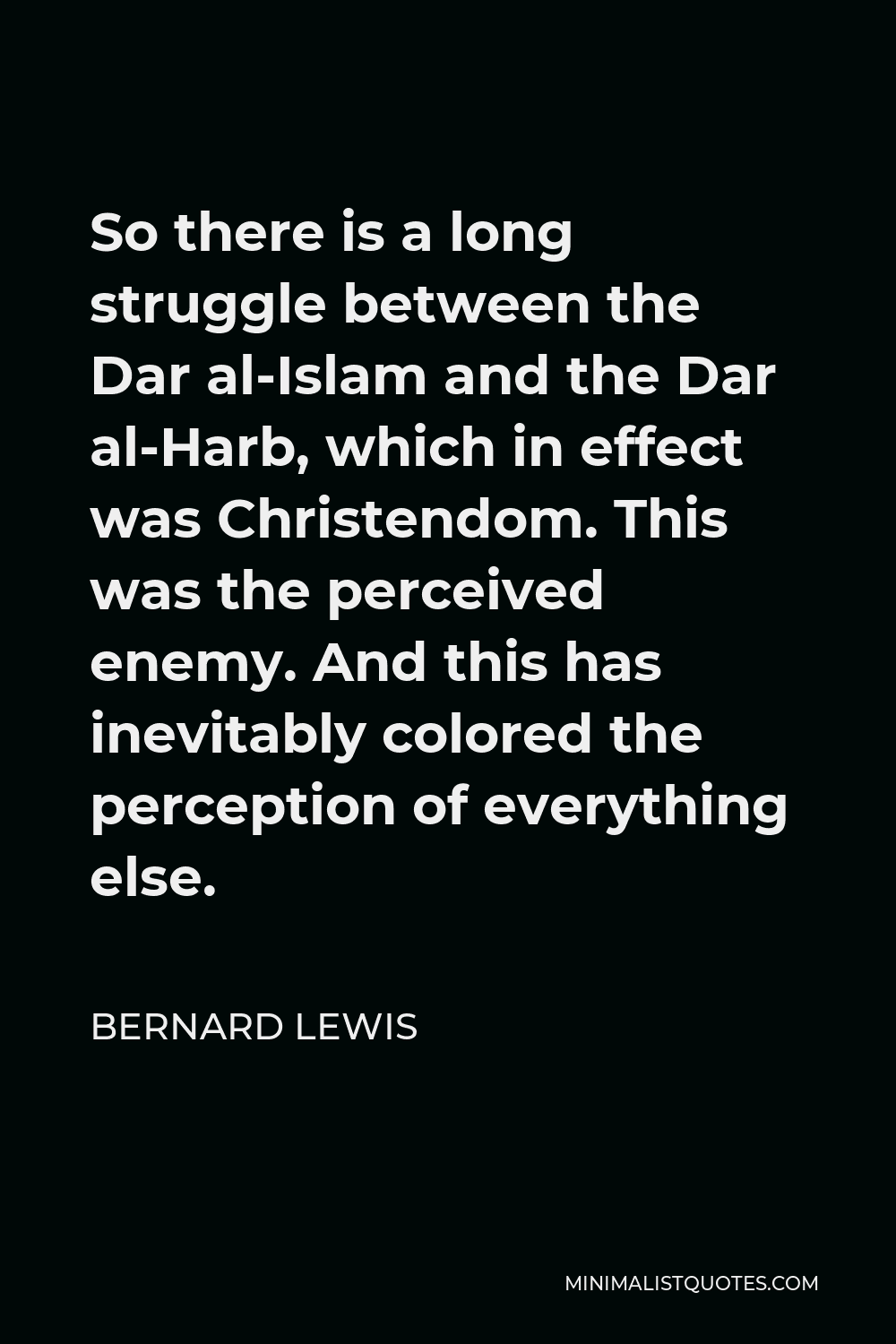
So there is a long struggle between the Dar al-Islam and the Dar al-Harb, which in effect was Christendom. This was the perceived enemy. And this has inevitably colored the perception of everything else.
BERNARD LEWIS -





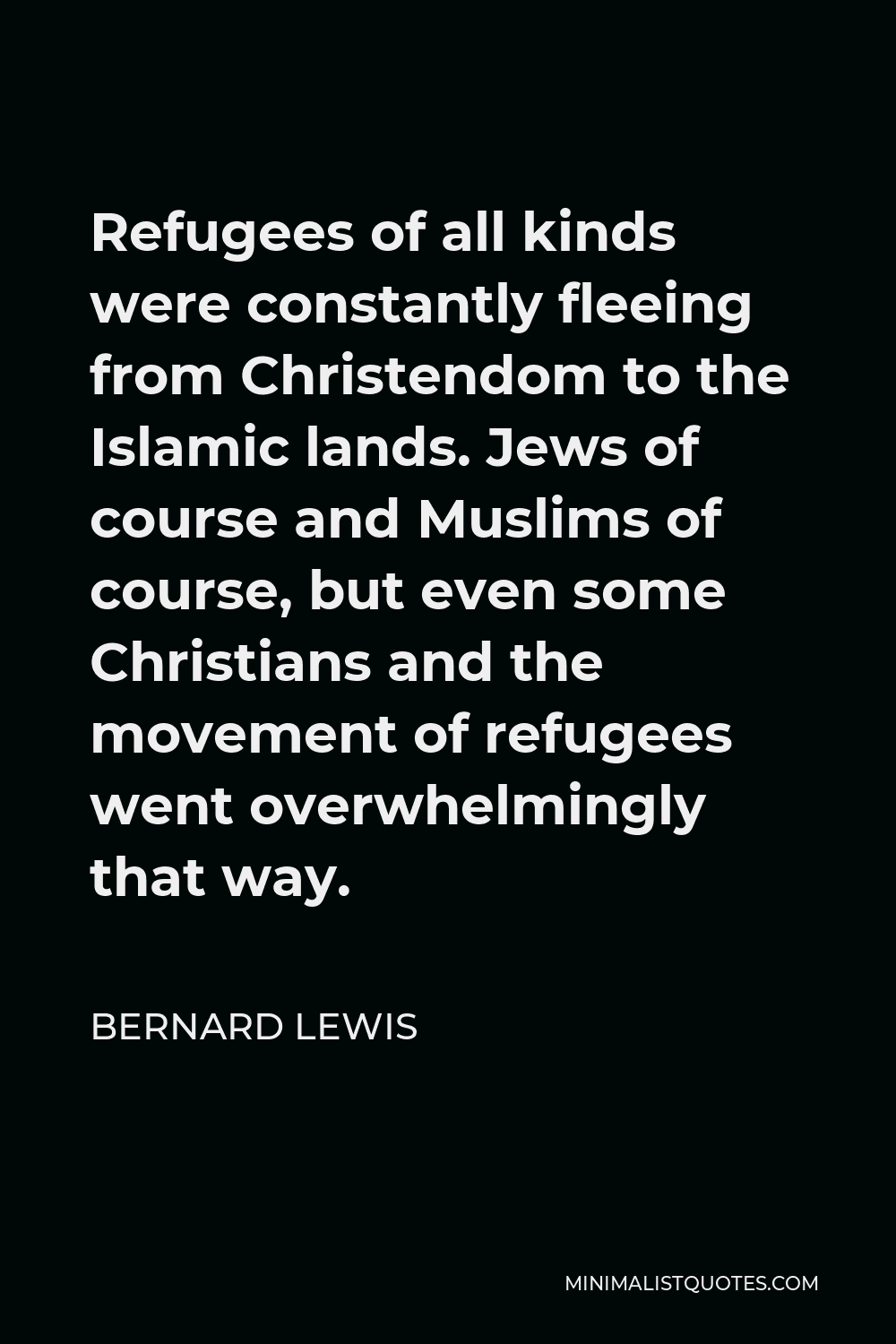
Refugees of all kinds were constantly fleeing from Christendom to the Islamic lands. Jews of course and Muslims of course, but even some Christians and the movement of refugees went overwhelmingly that way.
BERNARD LEWIS -





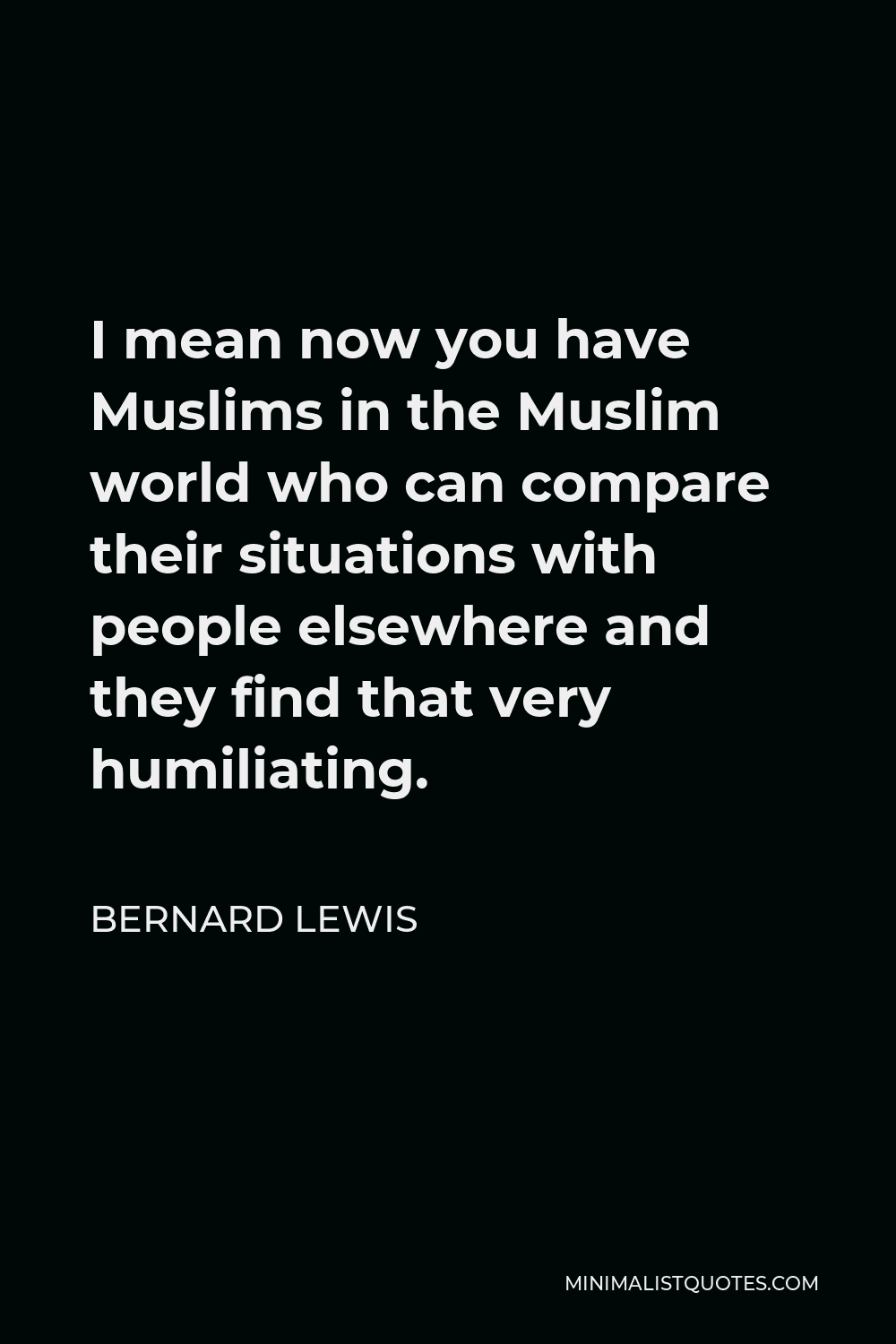
I mean now you have Muslims in the Muslim world who can compare their situations with people elsewhere and they find that very humiliating.
BERNARD LEWIS -





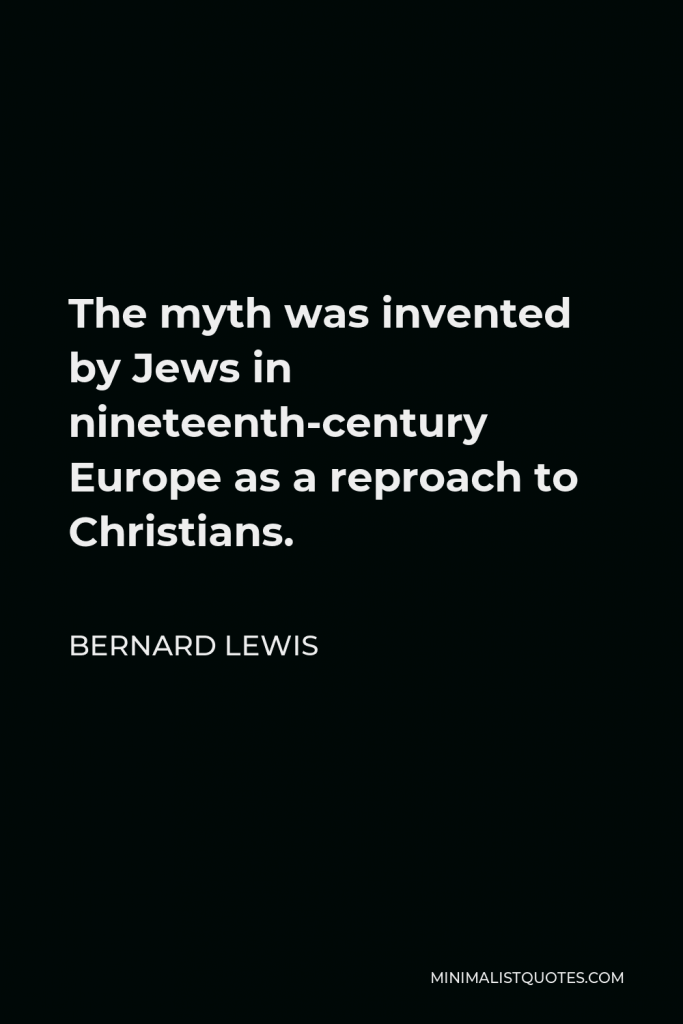

The myth was invented by Jews in nineteenth-century Europe as a reproach to Christians.
BERNARD LEWIS -





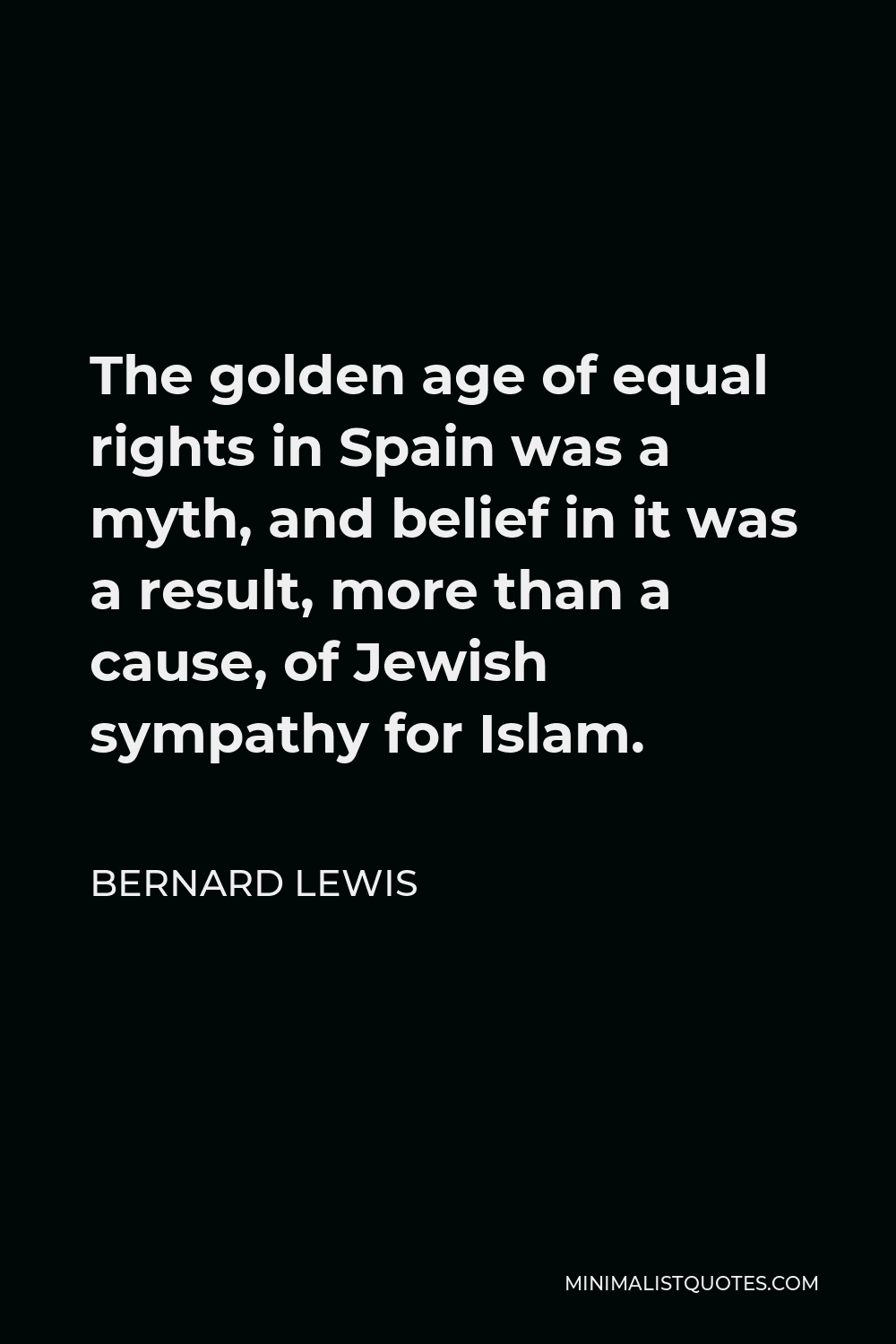
The golden age of equal rights in Spain was a myth, and belief in it was a result, more than a cause, of Jewish sympathy for Islam.
BERNARD LEWIS -





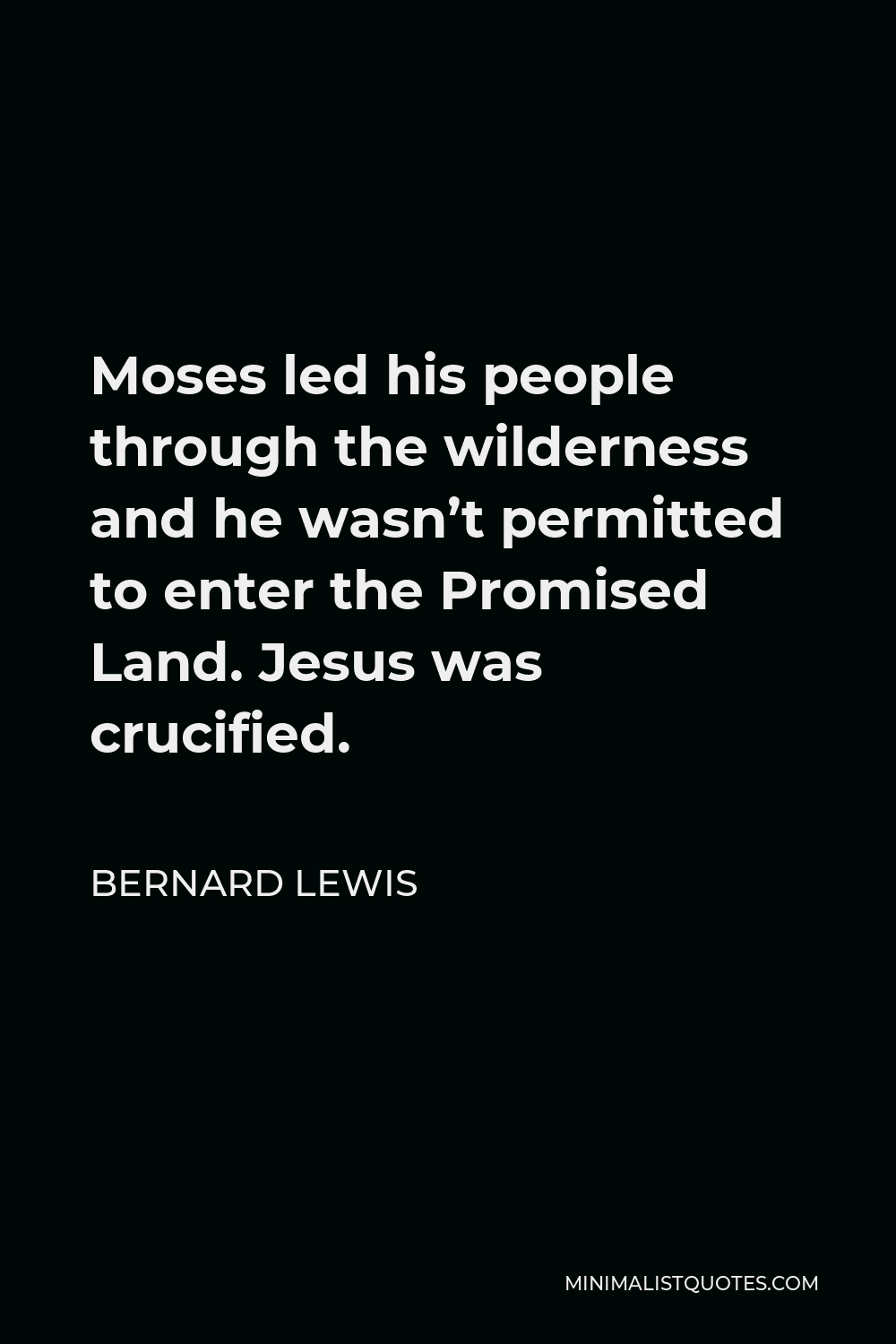
Moses led his people through the wilderness and he wasn’t permitted to enter the Promised Land. Jesus was crucified.
BERNARD LEWIS -





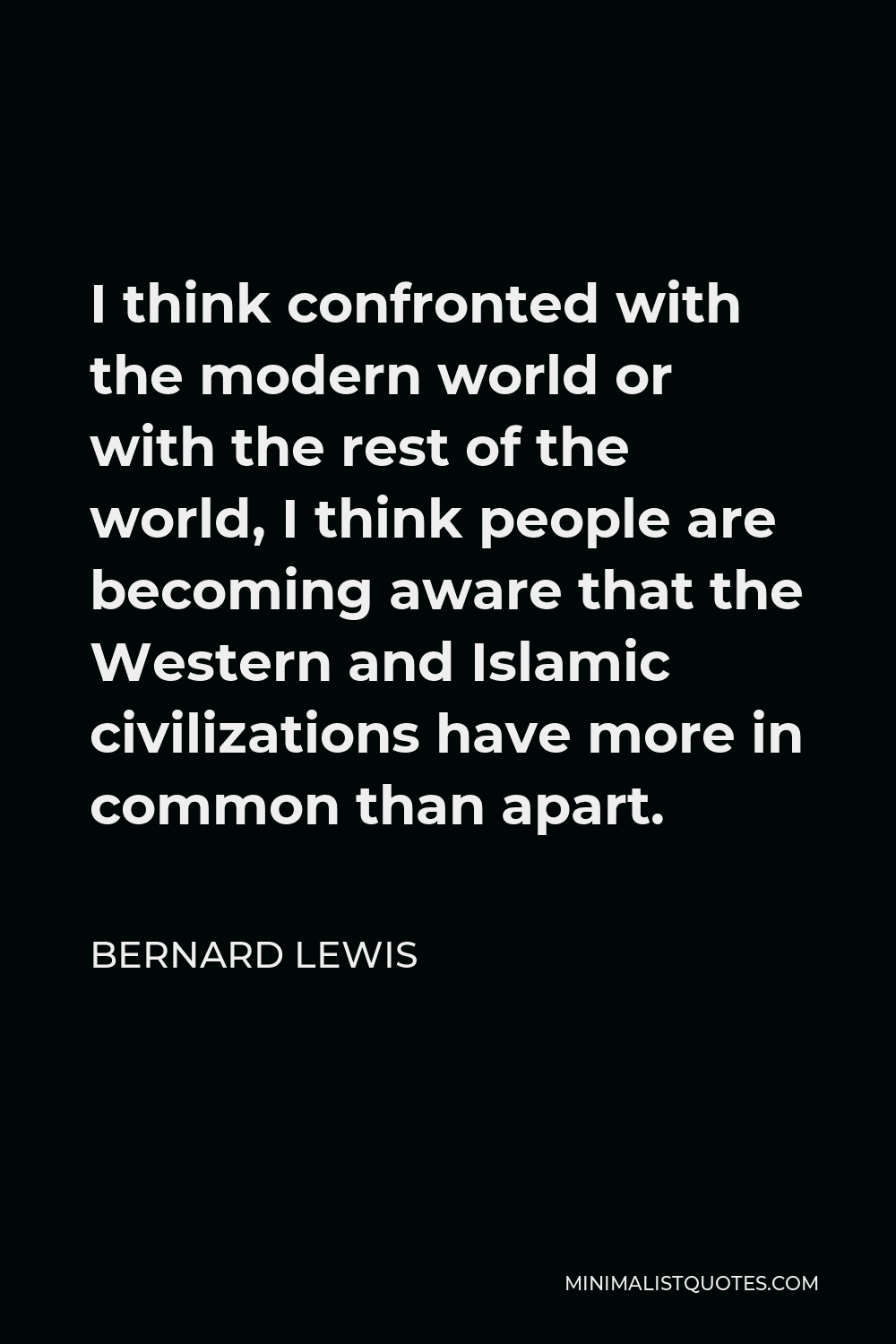
I think confronted with the modern world or with the rest of the world, I think people are becoming aware that the Western and Islamic civilizations have more in common than apart.
BERNARD LEWIS -





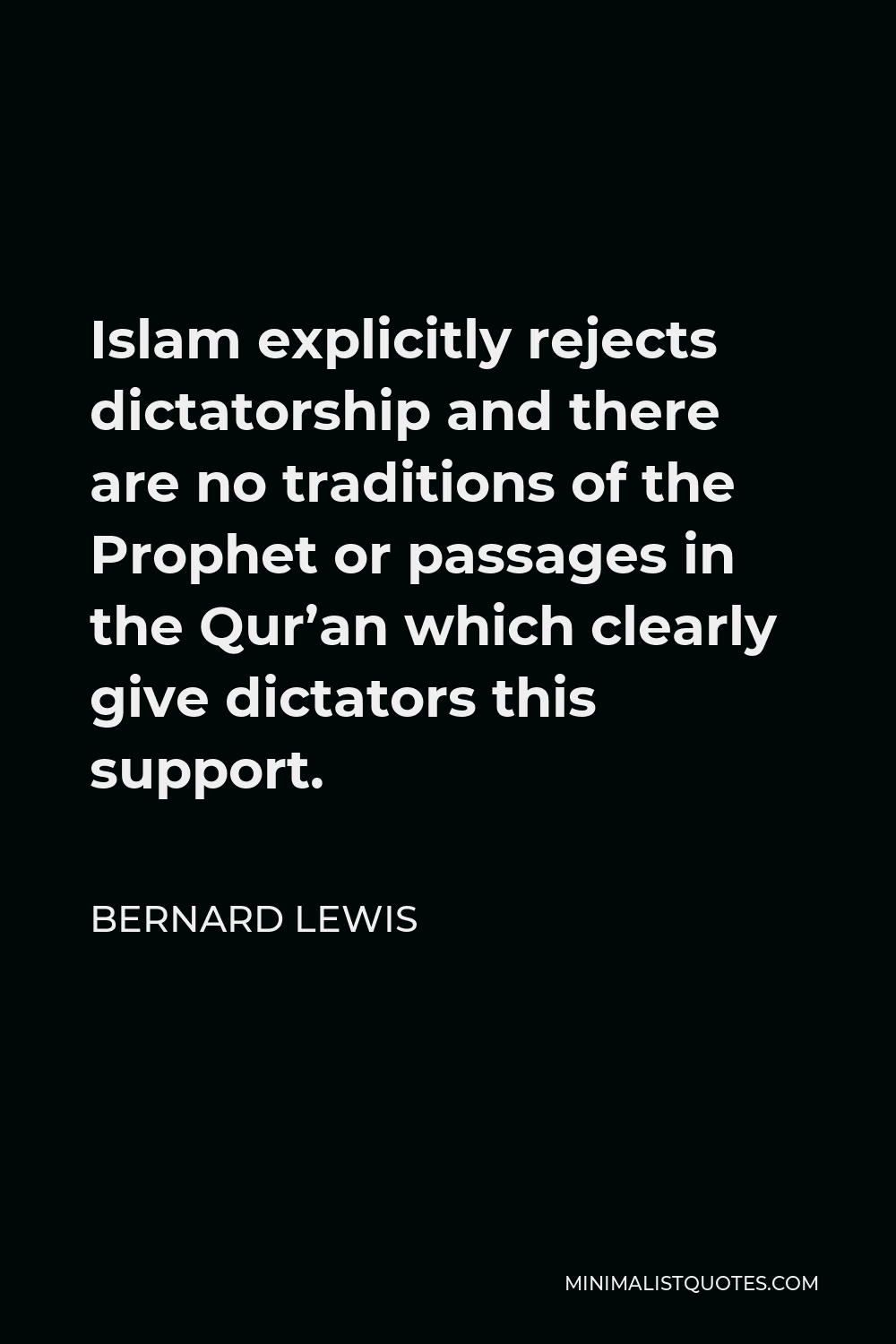
Islam explicitly rejects dictatorship and there are no traditions of the Prophet or passages in the Qur’an which clearly give dictators this support.
BERNARD LEWIS -





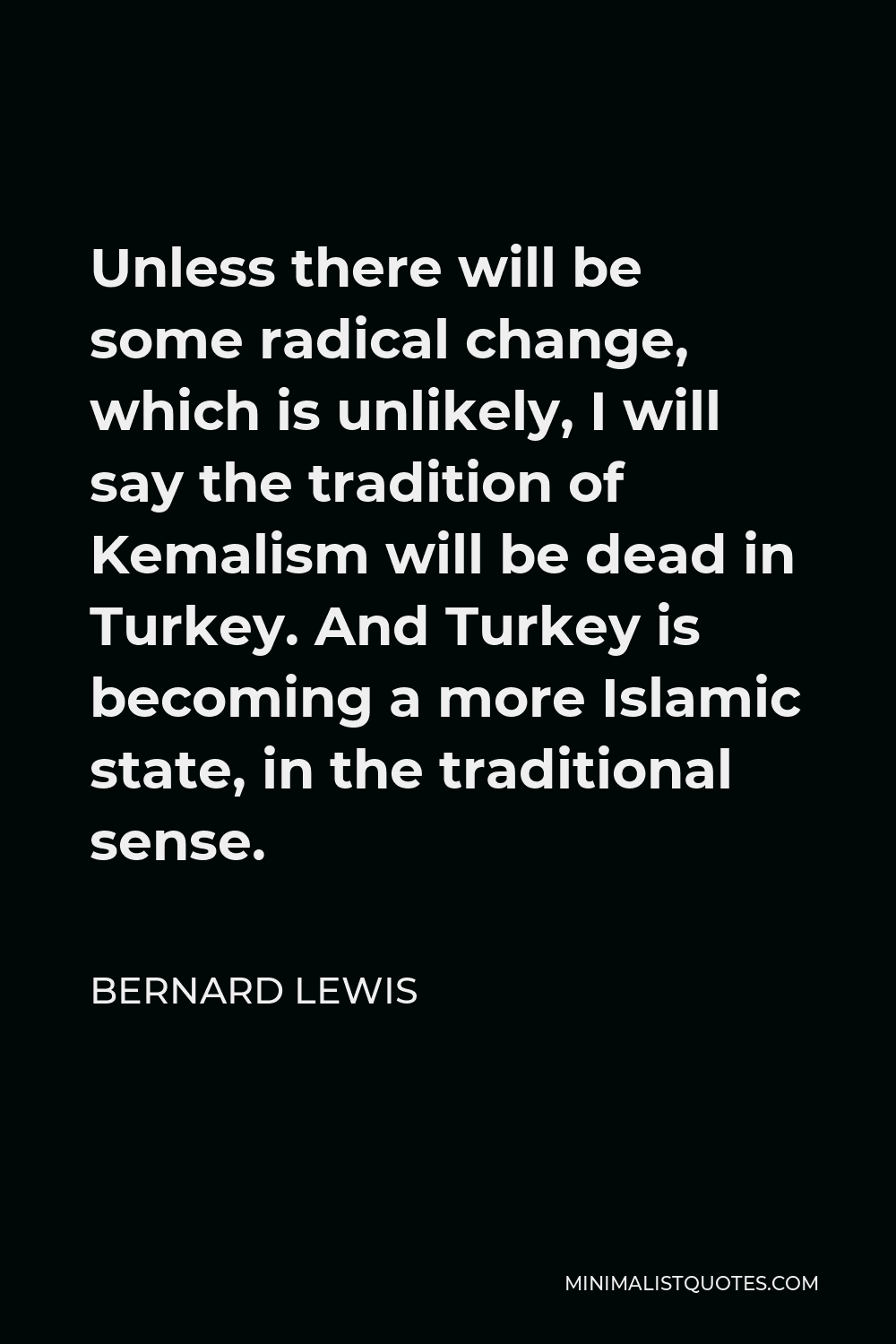
Unless there will be some radical change, which is unlikely, I will say the tradition of Kemalism will be dead in Turkey. And Turkey is becoming a more Islamic state, in the traditional sense.
BERNARD LEWIS -





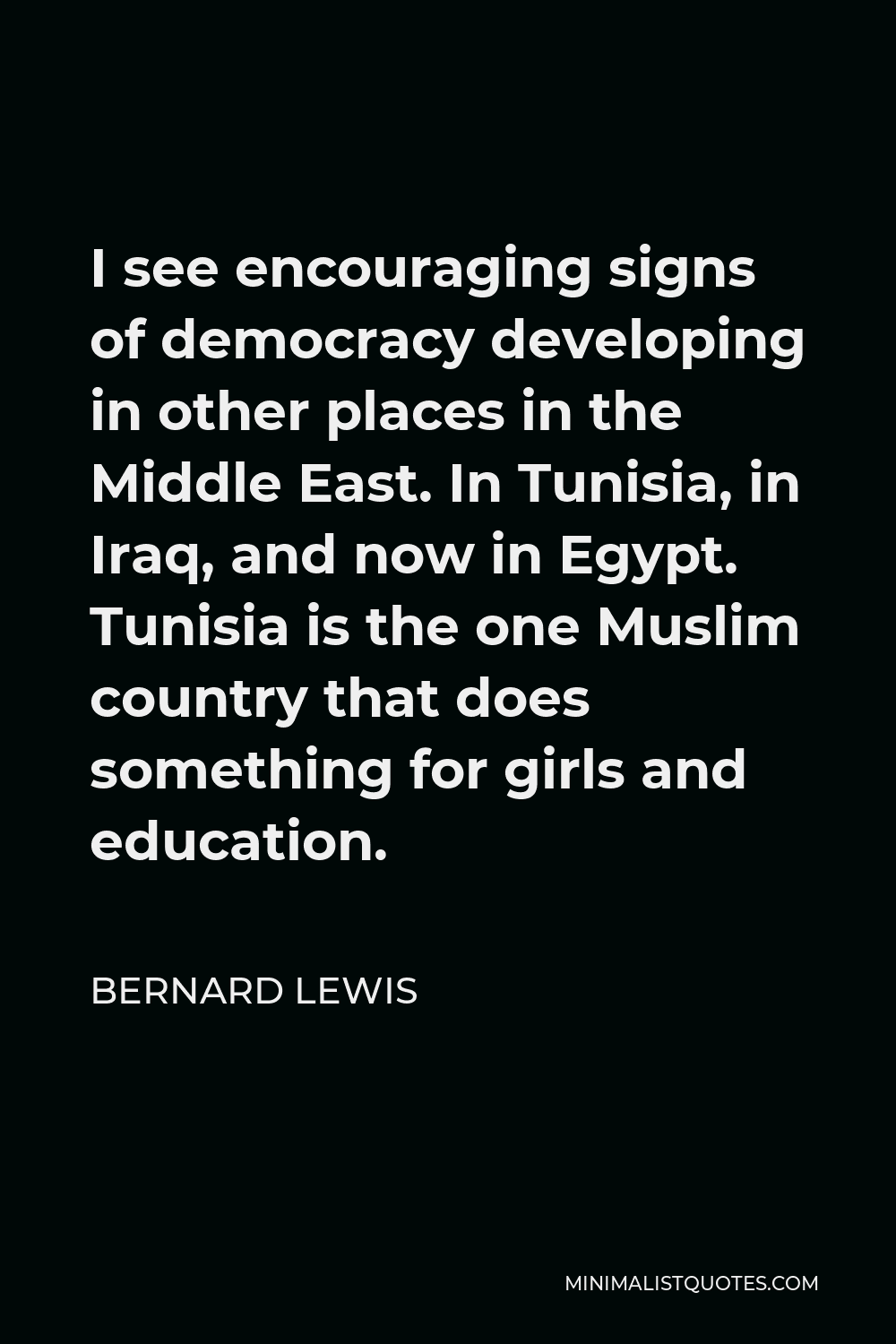
I see encouraging signs of democracy developing in other places in the Middle East. In Tunisia, in Iraq, and now in Egypt. Tunisia is the one Muslim country that does something for girls and education.
BERNARD LEWIS
